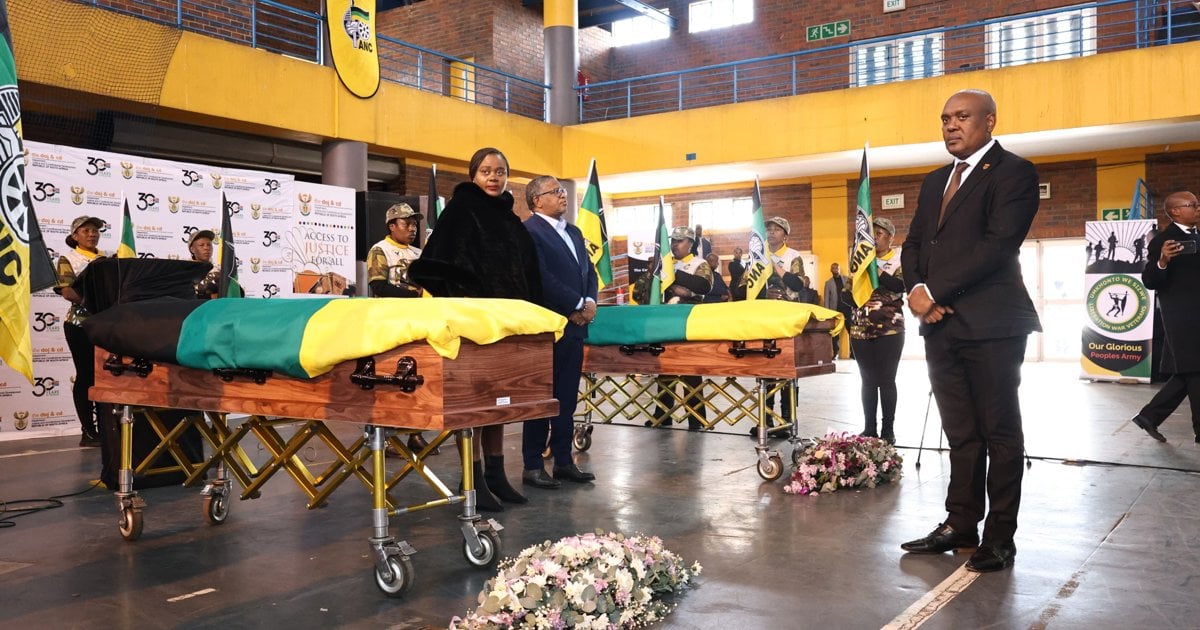
On Saturday, May 3, the South African government returned the body of anti-apartheid activist Benjamin Moloise to his family, nearly forty years after he was executed by the apartheid regime, sparking global anger.
Switch to the solemn ceremony in Soweto, Johannesburg, which included the remains of another African National Assembly (ANC) activist, Abraham Mngomezulu, who was also hanged by the apartheid government. The incident started with renewed focus on politically motivated atrocities committed during the white minority rule, with Cyril Ramaphosa recently announcing a judicial investigation into delays in prosecuting crimes in apartheid era.
Moloise was 30 years old after being convicted of killing security police in 1985, an allegation he denied. His death triggered riots throughout South Africa and condemned riots around the world. The United Nations passed a resolution calling for leniency, with Pope John Paul II condemning the execution and saying “the pain is trapped in an ongoing situation of objective injustice”.
Mngomezulu was 23 years old when he was hanged in 1989 and was sentenced to death after participating in a protest, a man killed for forced deportation. The two men were buried in an unmarked grave without the knowledge or presence of their family.
The Justice Ministry said the heavy state of Molois and Mnigomezu “signs an important milestone in the ongoing journey of recovery, justice and reconciliation in South Africa.” Attorney General Mmamoloko Kubayi said in a ceremony that the remains of 74 other victims executed under the apartheid regime have also been sent back to his family for retrial.
“We are determined to ensure that the heroes of our people are recognized to adapt to their contribution to black liberation,” Kubay said.
After the end of apartheid in 1994, South Africa established the Truth and Reconciliation Commission (TRC) in 1996 to investigate crimes such as murder and torture. The TRC held 2,500 hearings in two years and provided conditional amnesty to perpetrators who fully disclosed their actions. However, relatively few prosecutions.
On Wednesday, April 30, President Ramaphosa conducted a judicial investigation into allegations that filed a lawsuit, which intends to delay prosecution of the TRC recommended cases. Some investigations have been reopened this year, including ANC leader and Nobel Peace Prize winner Albert Luthuli, who died in 1967 under controversial circumstances.
